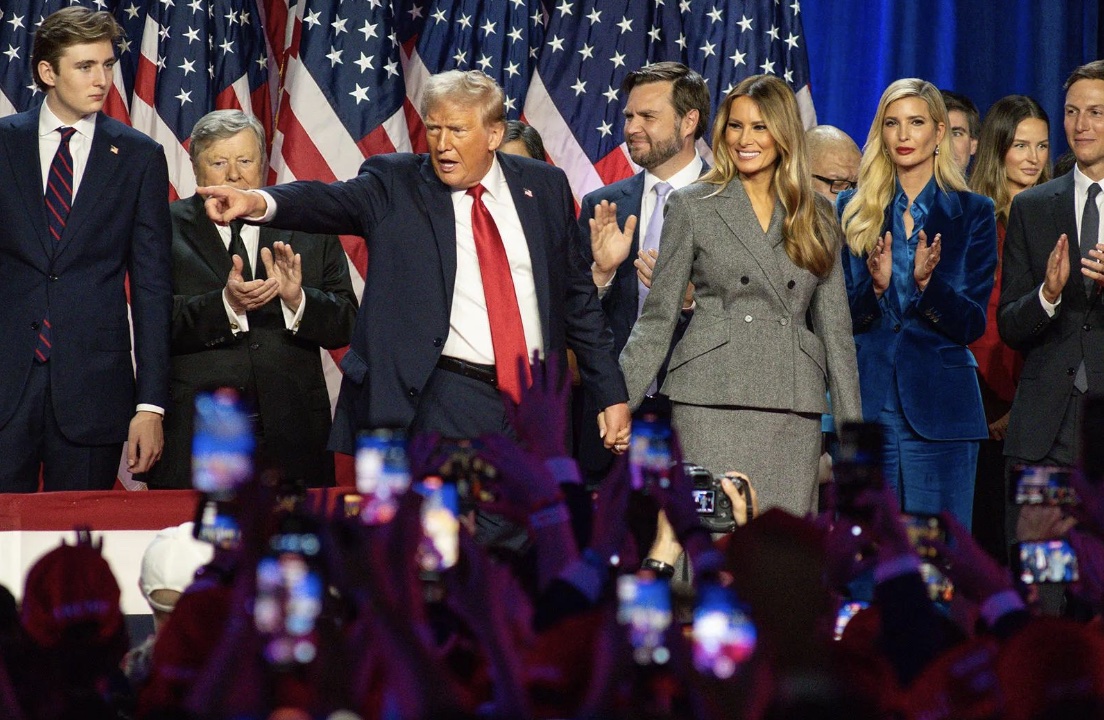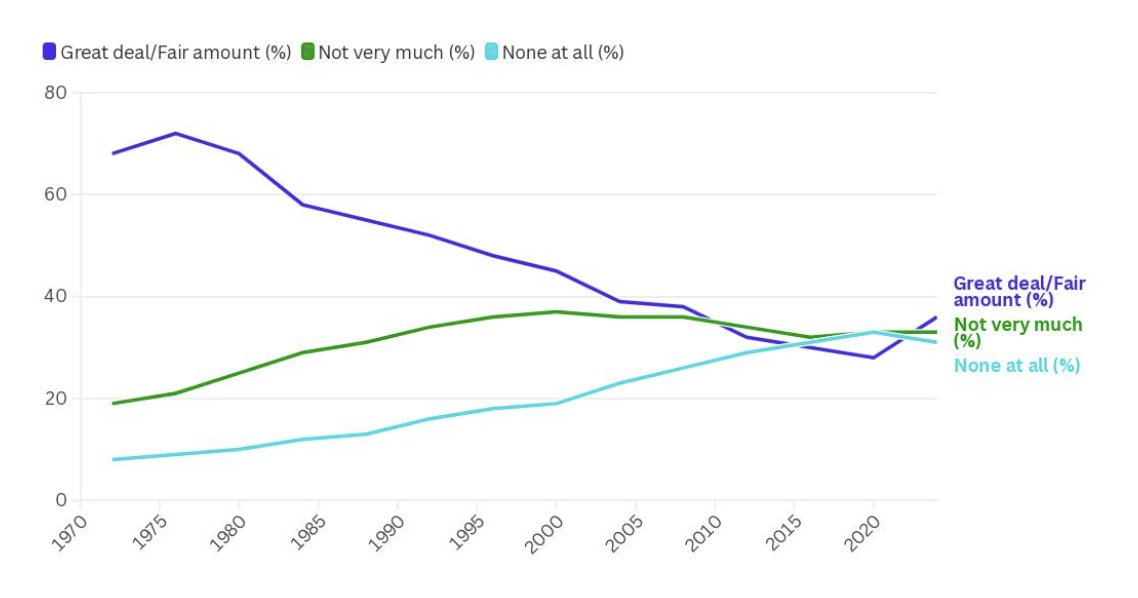Nov 20 (News On Japan) - "Harris is merely the runner-up; her media 'cheerleaders' are licking their wounds and will take longer to recover. After all, they were the ones who worked hardest to bring down Trump—yet, after eight years of effort, they’re weaker and more embarrassed than ever before," wrote Elle Purnell, an editor at The Federalist and one of the few traditional media figures who staunchly support Trump.

Though sharp, Purnell’s words hold some truth: this election was supposed to be a one-sided affair, easily predicted “scientifically.” Yet, right up to the last day, many considered this election one of the closest ever, with some expecting a Harris victory. Mainstream media and polling agencies had flooded the public with illusions—many journalists ignored the possibility of a Trump victory, leading to what Purnell called an “epic media failure.”
Trump’s re-election has become the mainstream media’s worst nightmare.
Ironically, traditional media became so convinced of their own narrative. When Trump’s win was confirmed, the mainstream media’s response was dramatic: MSNBC’s Joy Reid condemned Florida as “fascist,” CNN’s Van Jones teared up, ABC’s Sunny Hostin blamed “uneducated white female” voters, and PBS commentator Jonathan Capehart questioned, “What kind of country are we… I’m not sure I like it.” Purnell was blunt: "Traditional media figures don’t see themselves as obligated to represent Americans but rather as entitled to control them. Losing that control has enraged them."
So, what happened to American mainstream media? The answer is clear: accustomed to manipulating narratives, traditional media’s tactics have been exposed, leading to their steady decline.
Why Trump Dislikes Mainstream Media
“Congratulations on destroying mainstream media,” said Patrick Bet-David, an American entrepreneur, when interviewing Donald Trump on his podcast.
"Yes, and I'm very proud of it," Trump responded.
Trump’s disdain for American mainstream media runs deep. He has referred to journalists as “the enemy of the people,” claiming they mainly produce “fake news” and labeling traditional media as “disgusting and corrupt.” From September 1 to October 24 alone, Trump publicly insulted, attacked, or threatened the media over 108 times, further stating at least 15 times that broadcast licenses should be revoked from critical news outlets.
Trump once even made a crude joke, suggesting that reporters covering classified information without revealing sources should be jailed and “opened up” by prison conditions. He joked, “When that guy realizes he’s about to be someone’s ‘new bride’ in jail, he’ll say, ‘I’ll tell you everything.’”
Trump’s attacks on traditional media are perplexing. MSNBC’s Lawrence O’Donnell stated that media personnel struggle to cover Trump because “over 90% of them have never encountered someone like him… If you didn’t grow up around fools and racists, you need a long time to figure out what kind of person Trump is.”
Veteran journalist Bret Stephens argues that mainstream media made mistakes in covering Trump, focusing excessively on his outlandish remarks, which inadvertently normalized them. Reporters even attempted to rationalize his behavior, making it seem logical.
As a result, the more outrageous Trump’s statements, the more coverage he received, allowing him to dominate traditional media with ease. Stephens remarked, “Trump’s performance is the most compelling striptease in American political history: the dirtier he gets, the more he reveals, the more his core supporters adore him.”
Low Risk in Kicking a “Fallen Dog”
British writer Oscar Wilde once said, “In America, the president serves four years, but journalism rules forever.” Trump’s game comes with high risks, yet he boldly takes them because, in the face of rising digital media, American traditional media is on the brink of collapse.
American traditional media’s primary skill has become rumor-spreading. As Elle Purnell noted, “Throughout Trump’s political career, corporate media conglomerates have relentlessly tried to ruin him. They’ve colluded with Democrats to create scams, depicting Trump as a Russian puppet—all based on absurd rumors manufactured by his 2016 opponent’s team. During Trump’s presidency, they continually spread lies and awarded each other Pulitzer Prizes.”
Though they accuse Trump of lying, mainstream media’s own falsehoods are numerous.
American media commentator Casey Chalk remarked, “Just visit the Washington Post, Los Angeles Times, or New York Times websites, or tune into CNN or MSNBC, and you’ll be flooded with left-leaning content. ‘Fact-checking’ is a tool asymmetrically used to slander Republicans while excusing Democratic deceit and misconduct.” He joked that if the Washington Post and Los Angeles Times were serious about this, they’d have to lay off more than half their staff: “I’d be happy to provide a list of names.”
The Decline of Trust in Traditional Media

As digital media rises, traditional American media is rapidly deteriorating. In 2010, 105 million American households subscribed to cable TV; this year, it dropped to 68 million, a 35% decrease over 14 years. Since 2000, U.S. newspaper circulation has halved, and between 1989 and 2012, the number of journalists in American newspapers dropped by 39%. Today, only 2% of 10th graders in the U.S. read newspapers daily, compared to one-third in the 1990s.
Polls show that nearly 70% of Americans “don’t trust” or “completely distrust” traditional American media, a figure 17 percentage points lower than their trust in the federal government.
Traditional media has become a “fallen dog,” and Trump has merely given it one more kick.
Why Democrats Don’t Trust Traditional Media
In fact, even Democrats no longer fully trust mainstream media, though they may pretend otherwise.
Joe Biden may be the first president since Franklin D. Roosevelt to refuse an interview with the New York Times. Harris is also the first presidential candidate in modern U.S. history to decline an interview with Time Magazine. Of course, Trump has gone even further, boycotting CNN, Newsweek, and others for a long time.
The unspoken consensus: to win an election, rely on social media influencers.
Harris has also appeared on popular podcasts like Call Her Daddy hosted by Alex Cooper and with Shannon Sharpe. However, when invited by Joe Rogan for a three-hour show, Harris requested to cut it down to one hour, which Rogan refused, leading Harris to decline.
Brendan Gahan, CEO of Creator Authority, a digital marketing agency that has worked with Democratic politicians, remarked, “Harris treats content creators as media, not collaborators, which is a fundamental mistake, while Trump immerses himself in creator culture, meeting them and participating in their platforms.”
Trump’s three-hour appearance on Rogan’s podcast garnered 40 million views on YouTube in a week—more than twice the combined audience of the three major television news programs. The show’s organizer commented, “Interacting with Rogan’s podcast lets people see a human side of Trump that mainstream media deliberately avoids showing.”
Traditional Media Wary of Further Repercussions

“Influencers” may bring new challenges, but traditional media has already fueled a division in American society that is hard to mend. Upon learning of Trump’s victory, some Democrats lost their composure, prompting British media to mock them as “sore losers among American liberals.”
Unsurprisingly, Trump’s win signals that American traditional media may face an intensified backlash. Popular podcaster Matt Walsh declared that traditional media is “officially dead.” “Their ability to set the narrative has been dismantled. Trump’s 2016 media war has ended tonight, and they’ll never matter again.”
A U.S. journalist commented, “Throughout his campaign and previous term, Trump often used violent rhetoric and threats against the media. His re-election marks a dangerous period for American journalism.”
Between 2023 and 2024, attacks against journalists increased by over 50%, with 36% of American journalists reporting threats, which may worsen under Trump. New York Times publisher A.G. Sulzberger wrote, “Prepare for anything… Our entire industry, and all who rely on it, must brace for what’s to come.”















